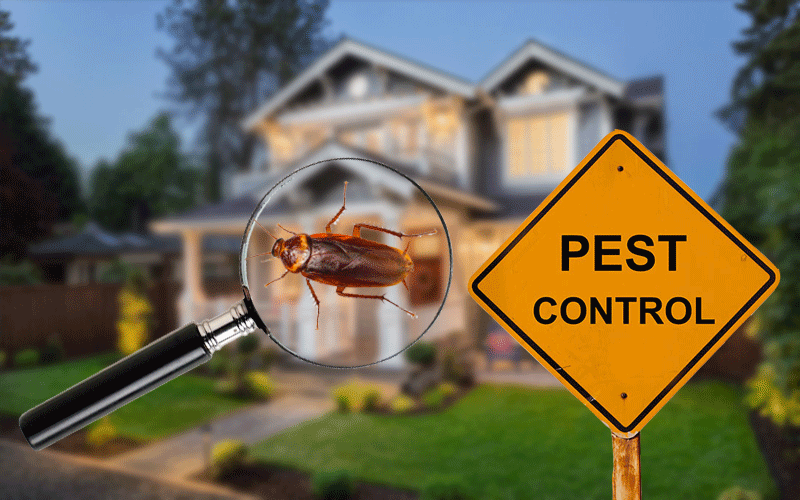Bed Insect Treatment Malfunction: Contrasting Chemical Vs. Non-Chemical Solutions
In the world of pest control, particularly when handling the persistent problem of bed insects, the selection between chemical and non-chemical therapy remedies can be an essential one. Both approaches supply distinctive benefits and drawbacks, affecting factors such as performance, safety factors to consider, and total expense. By taking a look at the nuanced details of each method, a more clear understanding of which course to pursue in dealing with a bed insect infestation can be attained.
Effectiveness of Chemical Treatments
Chemical treatments for bed insect problems have actually been widely recognized for their powerful and quick efficiency in eliminating these parasites. When considering the efficiency of chemical treatments, it is critical to recognize that they can provide a quick and complete service to a bed insect issue. Expert pest control men commonly rely upon insecticides to target bed bugs at various stages of their life process, consisting of adults, fairies, and eggs. These chemicals usually work by interrupting the bed pests' nerve system, causing paralysis and eventual death.
Moreover, chemical therapies have the advantage of supplying recurring effects, meaning that they can proceed to remove bed pests also after the initial application. This recurring activity is especially helpful in combating any kind of potential re-infestations. Furthermore, the fast activity of chemical therapies can bring relief to people encountering severe bed pest infestations, enabling them to regain control of their home quickly.
Security Problems With Chemical Solutions
One important aspect that requires mindful factor to consider when using chemical options for bed insect treatment is making certain the safety and security of owners and the environment. Exposure to particular chemicals made use of in bed pest treatments can lead to breathing problems, skin irritation, or other unfavorable reactions, especially in people with pre-existing conditions or level of sensitivities.
In addition, the ecological impact of chemical remedies is one more considerable factor to consider. Some pesticides used in bed bug treatments may be dangerous to useful insects, wild animals, and ecosystems if they seep into the soil or water supply. It is necessary to use chemical treatments carefully, complying with safety and security standards, and taking into consideration much less harmful options to alleviate these risks and ensure the risk-free and reliable administration of bed insect problems.
Advantages of Non-Chemical Approaches
Thinking about the prospective security concerns and ecological influence associated with chemical solutions for bed pest treatment, exploring non-chemical techniques provides an encouraging alternative with a number of unique benefits. Non-chemical therapies are ecologically friendly, as they do not add to air or water contamination, making them a lasting option for insect control.
Furthermore, non-chemical solutions can be effective in targeting bed pests, consisting of hard-to-reach locations where chemical therapies may not pass through - A1 exterminators charlotte nc. Methods such as warmth therapy, vacuuming, steam cleansing, and cushion encasements supply thorough removal without the usage of hazardous chemicals.
Limitations of Non-Chemical Treatments

Additionally, non-chemical important source therapies typically need several applications to achieve effective eradication. This can be time-consuming and may not constantly assure full elimination of all bed pests and their eggs, especially in concealed or hard-to-reach locations.
Moreover, the success of non-chemical treatments greatly relies upon proper execution and thoroughness, which can be challenging for people without professional expertise. Insufficient application of non-chemical approaches might cause incomplete eradication, resulting in persistent problems and the demand for added therapies.
Consequently, while non-chemical treatments have their benefits, it is vital to recognize these limitations and consider them when establishing the most effective approach for taking care of bed pest problems.
Expense Contrast: Chemical Vs. Non-Chemical Options
Offered the limitations connected with non-chemical treatments, an important element to assess in the context of bed bug administration is the price contrast in between chemical and non-chemical choices. Chemical treatments commonly entail the application of pesticides by experts, which can vary from $250 to $900 per space, depending upon the seriousness of the invasion and the size of the location to be dealt with. In comparison, non-chemical therapies like warmth therapy or heavy steam can be more expensive, with prices varying from $1,000 to $6,000 for a whole home. While the first price of chemical treatments may appear reduced, multiple treatments may be called for to fully get rid of the infestation, possibly increasing the total price. On the various other hand, non-chemical alternatives may supply an extra sustainable and green solution, although they can be cost-prohibitive for some people. Ultimately, when thinking about the price of bed pest therapy options, it is necessary to weigh the in advance costs against the effectiveness and long-term sustainability of the selected approach.
Verdict

Taking into consideration the potential safety issues and ecological effect associated with chemical options for bed bug therapy, checking out non-chemical methods offers an encouraging choice with numerous unique browse this site advantages.Offered the restrictions connected with non-chemical therapies, a vital aspect to examine in the context of bed bug management is the cost comparison between chemical and non-chemical choices. In contrast, non-chemical therapies like heat therapy or heavy steam can be a lot more costly, with prices ranging from $1,000 to $6,000 for a whole home. While the preliminary price of chemical therapies might appear reduced, multiple treatments might be required to fully eliminate the invasion, possibly enhancing the total Recommended Site expense.In verdict, when comparing chemical and non-chemical bed bug treatment options, it is necessary to consider efficiency, safety and security, advantages, constraints, and price.